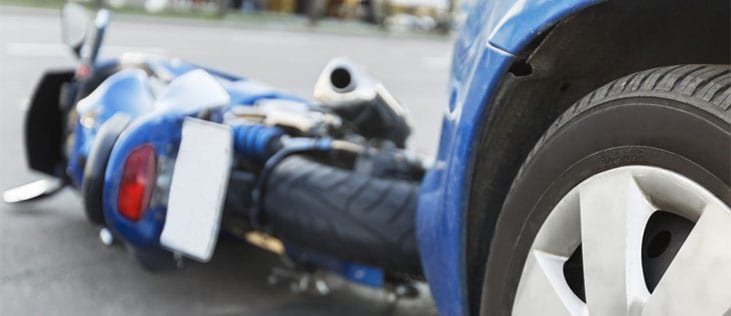 305-949-2526
305-949-2526



You’re catching the breeze on an exhilarating bike ride. Getting into a bicycle accident is the last thing on your mind.
You never think it could happen to you. But each year 60,000 cyclists are injured in vehicle crashes. Someone else’s reckless driving could land you in a bike crash.
Taking key steps at the accident scene can save you some pain and suffering. Here’s what to know and do if you’re involved in a bike crash.
Most bike/car crashes are caused by two factors.
Many accidents are also caused by rear-ending or doors opening into a cyclist. Let’s go over some important steps to take at and after an accident scene.
In most cases, you’ll escape a bike crash with small cuts and bruises. Still, try to sanitize and dress any wounds.
Not 100% sure that you’re okay? Get checked out at a hospital. Especially with head wounds, it’s better to be safe than sorry.
Even if you’re feeling okay after your accident you should call the police.
It’s important that police arrive to at least file a police report. This report will serve as an official record of what happened. You’ll also need it for submitting any insurance claims.
Tell the police all of your injuries and get a copy of the report. Let’s say for some reason the police never arrive at the scene. Head to a police station and make a statement to the police.
If you have a bike crash you also need to get the other driver’s details. Ask to see their ID and insurance card. You can also ask for proof that their vehicle isn’t a rental.
If they can’t provide this info definitely call the police. Also, don’t assume the police will write all these details on their report. So either you or if you’re injured, an able bystander, should.
Witnesses of your accident are an important source of information. Gather info and contact info from anyone who saw the bike crash. Their testimony will be useful for any legal proceedings down the line.
It’s also smart to take footage of the bike crash scene.
Unfortunately, sometimes drivers flee the scene of accidents. But any video and photographs you took could prove your case in court. Recordings can also prove the identity of the other driver.
Once you get up try to leave all the damaged property in place. Don’t move your bike or even wash your clothing when you get home. Leave the damaged bike as it is.
Preserve all your evidence in the state it was at the accident scene. Take photos of everything, including other bike equipment like your helmet.
You don’t only need to document your bike’s damage. You should also take pictures of your own injuries, no matter how small. These photos and medical records will prove your injuries actually happened.
Another good idea is to jot down your memory of the accident as soon as possible. Information like where and when it happened are important.
Keep a journal of your physical symptoms. Sometimes injuries only show symptoms days after an accident.
You may be entitled to accident coverage from your accident. Keep these tips in mind for claiming from a bike crash.
For insurance purposes, you’ll eventually need to have your bike evaluated. You can also give it a look over yourself. Here are some key things to check on after an accident:
Depending on your accident, you may need to consult a personal injury attorney. You can even hire an attorney who specializes in bike crashes.
Many bicyclists don’t have personal injury or liability insurance. This can make compensation for injuries and damages very complicated. An attorney can help the process by:
The good news is that most injury cases are settled without going to trial. Still, consult with an attorney before talking with insurance companies. This is because insurance companies can use your own words against you later.
Whether you’re riding through town or going mountain biking you should cycle prepared. Ride with everything you’d need in the event of a crash.
It’s a good idea to take a few bike tools along for the ride. Carry basic first aid supplies like gauze and antiseptic with you. Bike tools like a chain link and pump are also good to bring along.
Have you been injured in a bike crash? Do you need an experienced team by your side? Get in touch with our practice today for a consultation.